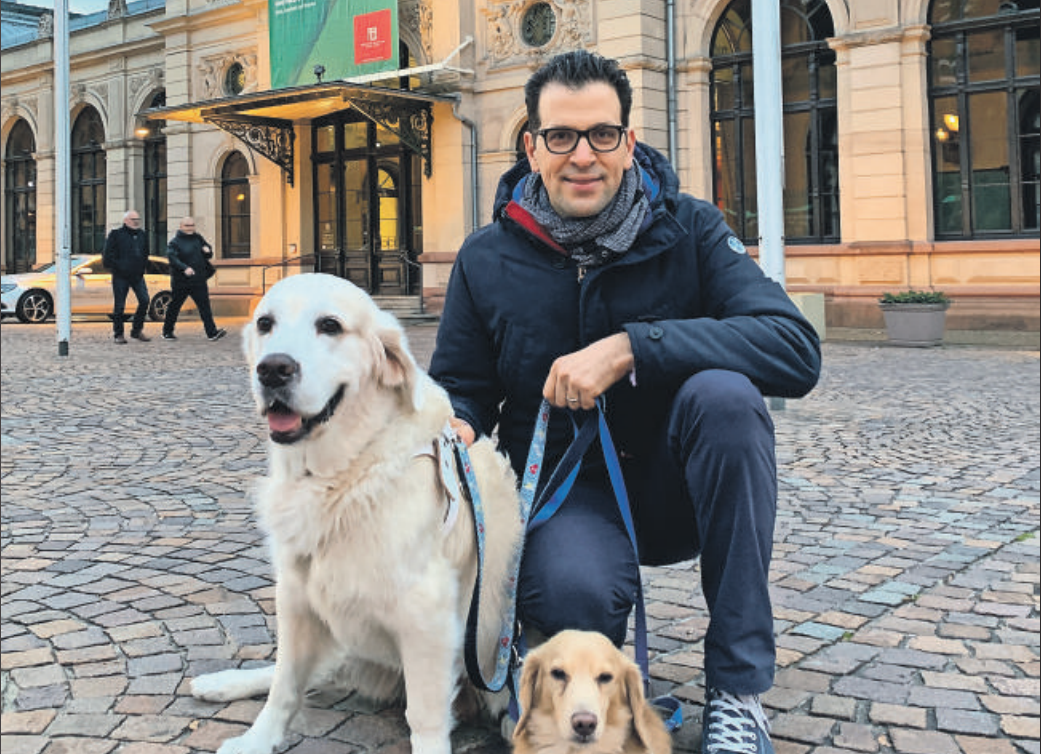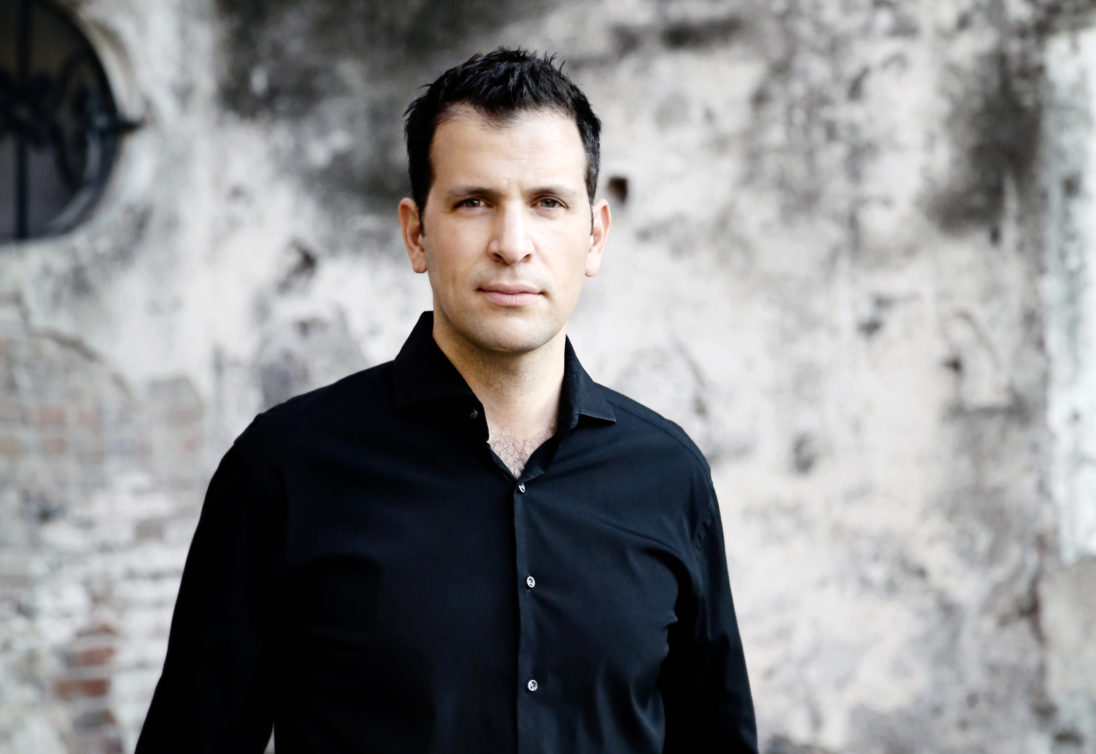Opera Traveller: Interview with Luca Pisaroni
ScrollRaised in Busseto, Italy, Luca Pisaroni has established himself as one of the leading bass-baritones of today. Following initial studies in Milan, Buenos Aires and New York, he made his operatic debut in the title role of Le nozze di Figaro in Klagenfurt in 2001. Strongly identified with the music of Mozart and Rossini, Mr Pisaroni is also widely recognized as a fine interpreter of a repertoire ranging from the baroque to the present day. He has performed at many of the world’s major lyric stages including La Scala, the Wiener Staatsoper, Zurich, Toronto and Salzburg. Recent, current and future engagements include Méphistophélès in Gounod’s Faust in Madrid, Mustafà at the Liceu, Don Giovanni and Leporello at the Met and Munich respectively, and the world premiere of Tarik O’Regan’s The Phoenix in Houston. I caught up with Mr Pisaroni by telephone from his home in Vienna as he prepared to make his debut as the Four Villains in les Contes d’Hoffmann in Baden-Baden.

Mr Pisaroni, you’re currently preparing to make your debut as the villains in Les Contes d’Hoffmannn in Baden-Baden. Tell us a little about your preparations for the roles.
I’ve been working on these roles for a while now and I’m incredibly excited that I’m getting to sing them. I have memories of seeing Hoffmann for the first time at the Scala back in 1994 – 95 with Sam Ramey and Chailly conducting. Since then, I’ve really wanted to sing these parts and I can’t wait to get on stage. The only regret is that it was supposed to be a staged production, but instead we’re going to do it in concert. These roles are really different, from Coppélius, which is like a bass, to Miracle which is almost a baritone part, then to Lindorf who is a bass-baritone. You have the whole range vocally and also dramatically as well. When I was studying the roles with José van Dam, he told me that you have to invent four different kinds of people, in fact. And of course, doing the work in a staged production would make it a little bit easier to pull off, with the costumes and weeks of rehearsals to prepare. But I’ve been working on the piece a lot and I’m going to the first rehearsals thoroughly prepared to really make something of the characters.
When you get offered a role, or indeed roles, such as this, talk us through your process of preparing for a debut.
First of all, I always stress the importance of looking through the scores before agreeing to anything. Obviously in this case, it was an opera that I knew from listening to it, but I’d never actually had the time to study it. So, when I was asked to do it, I looked at the score and from that, I got a sense of how it’s going to be. When I learn a role, I always like to plan myself so that I learn it well in advance, leave it, and then go back to it. I always learn roles in this way because I realize that it takes a little bit of time for the body to internalize a role, to become your own in your vocal cords. Of course, it’s much easier if you know, for example, Figaro and Leporello and you move on to, say, the Count or Don Giovanni. The roles are different, but the musical language is the same. Hoffmann is different from other roles that I’ve sung. I’ve taken my time to learn the notes, I coached it, left it for a while, then coached it again. I do tend to sing through the role a lot in my preparations.
I also try to look for different interpretations from singers of the past. It’s not about copying and stealing ideas. It’s much more about looking at how people with different kinds of voices have dealt with the role and trying to understand where my voice fits in, which singer is similar to me and look at how he solved the questions that I have – how he got through a long phrase, for example. This is how I do it. Of course, everybody has a different approach. I find it really helpful to listen to singers of the past and how they dealt with the technical questions of the role. The process is tiring, exhausting and very long. There are a lot of questions and very little answers. I’m curious to see which answers we’ll find together with Marc Minkowski at the first musical rehearsal.

Have there been any differences in how you’re prepared for it given that it’s a concert performance as opposed to a staged production?
It’s exactly the same. I have to say I feel even more responsibility to make something out of the character dramatically in a concert performance. In a staged production you’re helped by the costume, lighting, set – it makes entering into the character much easier. Obviously now, I also need to think about how I can make these four characters look and sound different in a concert setting. It’s not an easy task. In a way, it’s nice because you can really focus on the music. At the same time, the hard part is that it’s not easy to do a piece like this and not be able to see the conductor because he’s behind you.
You’ll also be part of a cast with a number of role debuts in fact.
Once you’ve reached a certain level in your career, you don’t have the luxury of trying things in a smaller venue. Especially these days when you can sing anything, anywhere and someone will write about it. I remember that in the past, a singer like Bergonzi, would have debuted Cavalleria Rusticana in a provincial house in Italy without the pressure of doing it for the first time in a big house. Now, everything is so accessible. I’m happy to be part of a cast with such great colleagues. I’ve worked with them before, I know all of them, and there is a sense of being part of the same adventure when you know there’s a fellow singer making a debut just like you. I’m extremely excited about this Hoffmann.

Later this season you have another debut coming up, that of Claudio in Agrippina in concert which, like this Hoffmann, will be with another period instrument orchestra. What do you think are the differences when you sing with a period instrument band as opposed to when you sing with modern instruments, for example?
I’ve sung some roles with both modern instruments and old instruments, and when you sing them you realize that they were not made for modern instruments. These days, orchestras like to tune higher because the sound is more penetrating and has more shine and brillo to it. For a singer, there’s something more comfortable, for want of a better term, when it comes to singing at baroque pitch. Often composers write so much in the passaggio area and singing it at a quarter of a tone lower does make a big difference. When I sang Così fan tutte at Glyndebourne with Iván Fischer and the Orchestra of the Age of Enlightenment, I was able to bring out certain colours in the voice at the lower pitch, finding a different position of the voice and making a sound that, when you sing in a big house at modern pitch, you aren’t always able to.
Mozart is key to your repertoire in many ways. You are recognized as one of the leading Leporellos before the public today, but later this season you’ll be making your debut as Don Giovanni. How do you learn another key role in an opera you know so well?
I had the same experience with Figaro. I’d sung almost 150 performances as Figaro before I started singing the Count. I thought the second act finale would be a disaster because I’d never remember when Figaro sings, when the Count sings. In fact, in 2015, I made a recording of Figaro in Baden-Baden while I was rehearsing the Count in Salzburg and I never made a mistake. I think it’s because they’re just so different in terms of personality and character. It’s the same with Don Giovanni and Leporello. I’m excited about taking on Don Giovanni because I’ve been thinking hard about how I’ll create the character because, up until now, I’ve always seen the action from Leporello’s perspective. It’s going to be fascinating to see the murder of the Commendatore, for example, from Giovanni’s point of view. I was asked over ten years ago to sing Don Giovanni, but back then I didn’t feel ready – I felt it was too big for me dramatically. I’m so happy I waited, because it’s even more exciting to take this role on now. I’ve been waiting a long time to get my hands on this role.


